Horsetail Tincture
$25.00
Horsetail tincture, derived from Equisetum arvense, is rich in silica and may support bone, hair, skin, and nail health while acting as a diuretic for urinary health. Always dilute properly and consult a healthcare provider, as evidence is mostly anecdotal and long-term use may pose risks.
- Premium Quality
- Secure Payments
- National Shipping
Description
Horsetail Tincture
Equisetum arvense
A horsetail tincture, made by extracting the aerial parts of the Equisetum arvense plant in alcohol or a similar solvent, is used in traditional and alternative medicine for its potential health benefits. Below is a concise overview of its purported benefits, based on traditional use, preliminary research, and available information:
Potential Benefits of Horsetail Tincture
Bone and Connective Tissue Health:
-
Horsetail is rich in silica, a mineral essential for collagen formation, which may support bone strength, joint health, and connective tissue repair.
-
Preliminary studies suggest it may aid in bone healing and improve conditions like osteoporosis, though clinical evidence is limited.
Hair, Skin, and Nail Health:
-
The high silica content in horsetail is believed to promote hair growth, strengthen nails, and improve skin elasticity by supporting collagen production.
-
Anecdotal reports indicate topical or oral use may reduce brittle nails or hair loss.
Diuretic and Urinary Health:
-
Horsetail has traditionally been used as a diuretic to increase urine output, potentially aiding in detoxification, reducing edema, or supporting kidney and bladder health.
-
It may help alleviate urinary tract infections or kidney stones, though scientific evidence is sparse.
Anti-Inflammatory and Antioxidant Effects:
-
Horsetail contains antioxidants like flavonoids, which may reduce inflammation and protect cells from oxidative stress.
-
It is sometimes used to soothe inflammatory conditions like arthritis or skin irritations.
Wound Healing and Skin Health:
-
When applied topically (diluted), horsetail tincture may promote wound healing and reduce inflammation in skin conditions like eczema or minor cuts due to its astringent and antimicrobial properties.
-
Traditional use suggests it may improve skin tone and texture.
Hair and Scalp Health:
-
Horsetail tincture is often used in hair care to strengthen hair follicles and reduce dandruff or scalp irritation when diluted and applied topically.
-
Its silica content may support hair shaft strength, though evidence is mostly anecdotal.
How It’s Used
-
Oral Use: Recommended dosage for daily use is on the backside of the label.
-
Topical Use: Diluted with a carrier oil (e.g., coconut or jojoba) or water and applied to skin or scalp for localized benefits.
-
Rinses: Diluted tincture may be used as a hair rinse or mouthwash for oral health.
Precautions
-
Dilution: Tinctures are highly concentrated; undiluted use can irritate skin or mucous membranes.
-
Allergies: Some individuals may be allergic to horsetail. Patch-test before topical use.
-
Drug Interactions: May interact with diuretics, lithium, or medications affecting kidney function. Consult a healthcare provider if on medication.
-
Pregnancy/Breastfeeding: Avoid use due to insufficient safety data.
-
Long-Term Use: Prolonged use may deplete thiamine (vitamin B1) due to horsetail’s thiaminase content; avoid in those with low thiamine levels.
-
Quality: Use only high-quality, properly prepared horsetail tincture, as contamination with toxic species (e.g., Equisetum palustre) is a risk.
While horsetail has a long history in traditional medicine (e.g., European herbalism, Native American remedies), many benefits are supported by anecdotal evidence or early-stage research rather than large-scale, peer-reviewed clinical trials. Always consult a healthcare professional before using horsetail tincture for medical purposes.
Additional information
You must be logged in to post a review.


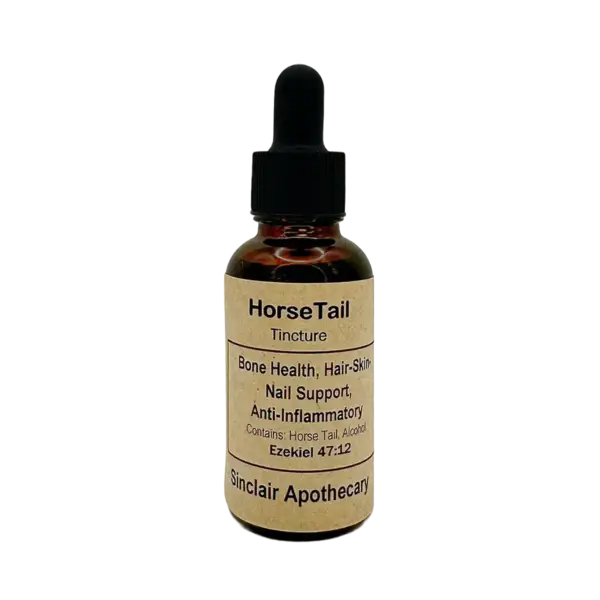
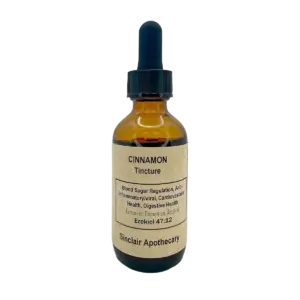

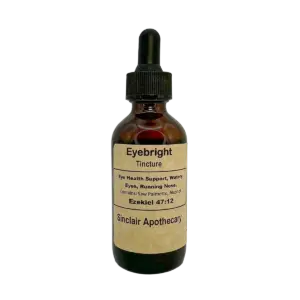
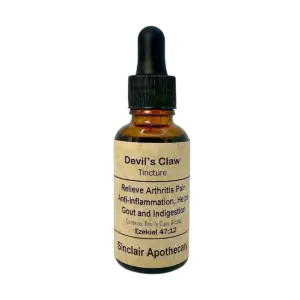
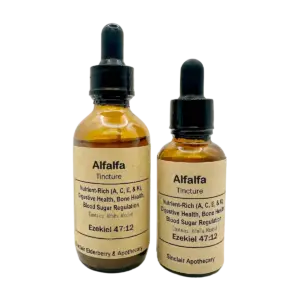
Reviews
There are no reviews yet.